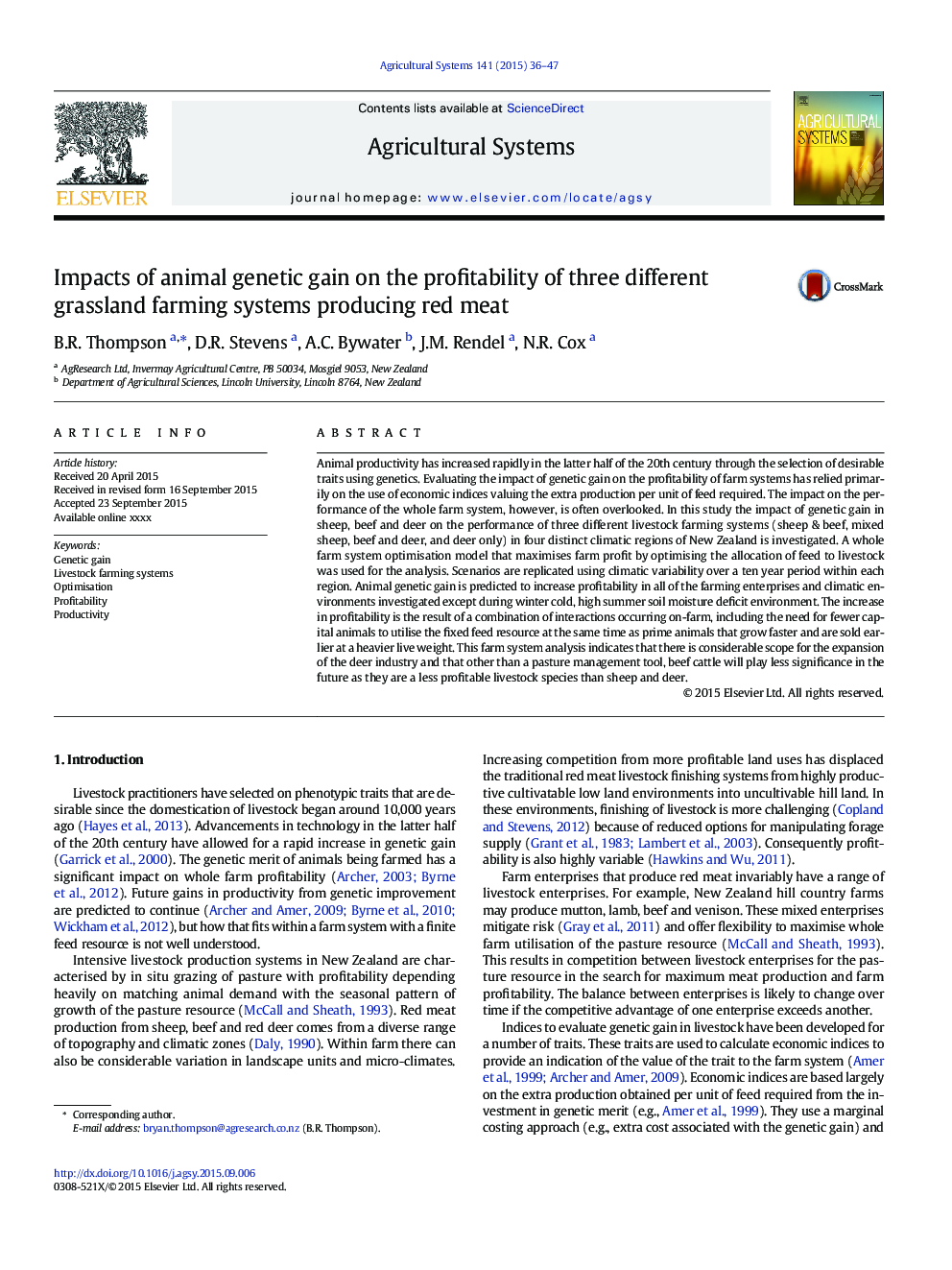| Article ID | Journal | Published Year | Pages | File Type |
|---|---|---|---|---|
| 6368420 | Agricultural Systems | 2015 | 12 Pages |
Abstract
Animal productivity has increased rapidly in the latter half of the 20th century through the selection of desirable traits using genetics. Evaluating the impact of genetic gain on the profitability of farm systems has relied primarily on the use of economic indices valuing the extra production per unit of feed required. The impact on the performance of the whole farm system, however, is often overlooked. In this study the impact of genetic gain in sheep, beef and deer on the performance of three different livestock farming systems (sheep & beef, mixed sheep, beef and deer, and deer only) in four distinct climatic regions of New Zealand is investigated. A whole farm system optimisation model that maximises farm profit by optimising the allocation of feed to livestock was used for the analysis. Scenarios are replicated using climatic variability over a ten year period within each region. Animal genetic gain is predicted to increase profitability in all of the farming enterprises and climatic environments investigated except during winter cold, high summer soil moisture deficit environment. The increase in profitability is the result of a combination of interactions occurring on-farm, including the need for fewer capital animals to utilise the fixed feed resource at the same time as prime animals that grow faster and are sold earlier at a heavier live weight. This farm system analysis indicates that there is considerable scope for the expansion of the deer industry and that other than a pasture management tool, beef cattle will play less significance in the future as they are a less profitable livestock species than sheep and deer.
Related Topics
Life Sciences
Agricultural and Biological Sciences
Agricultural and Biological Sciences (General)
Authors
B.R. Thompson, D.R. Stevens, A.C. Bywater, J.M. Rendel, N.R. Cox,
